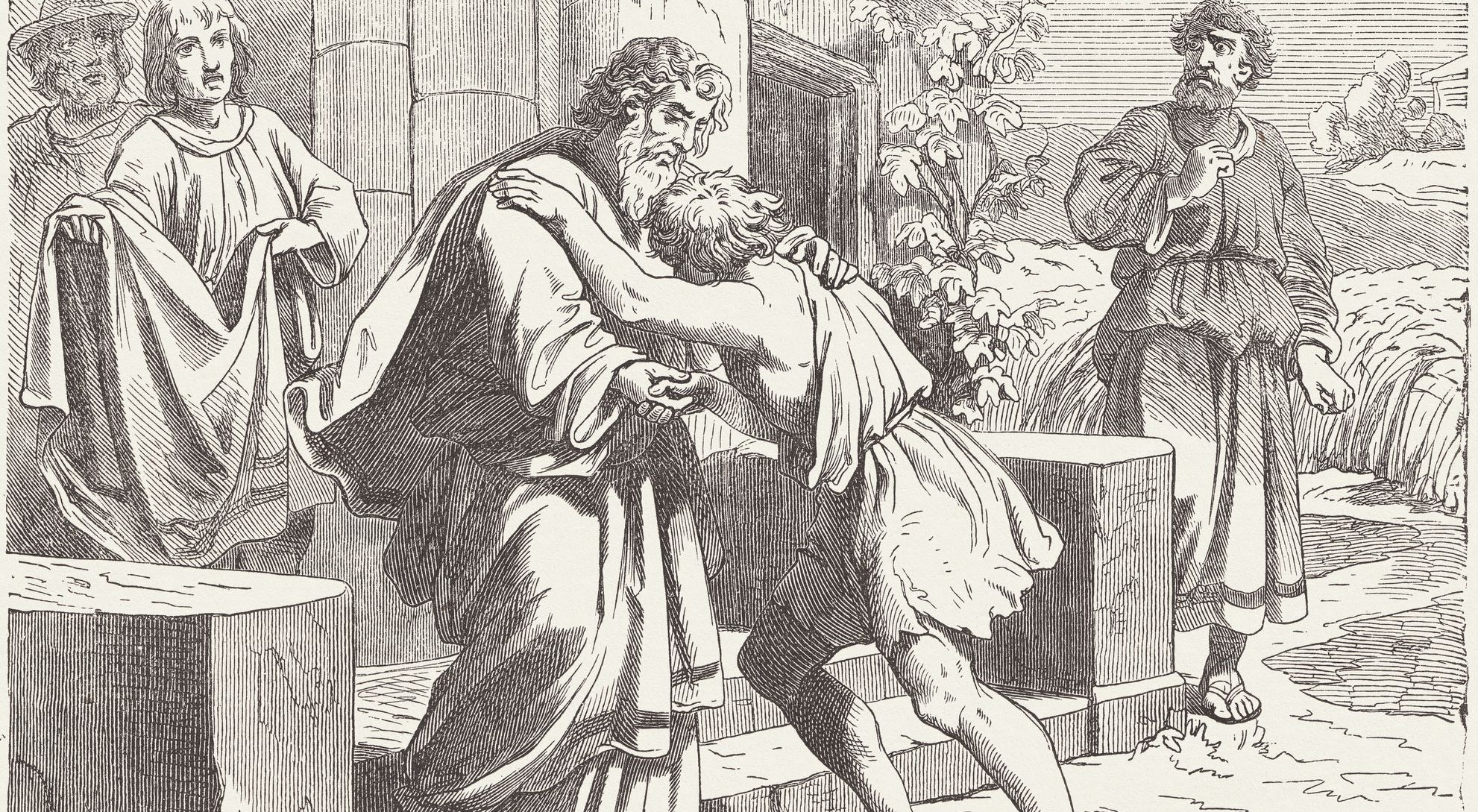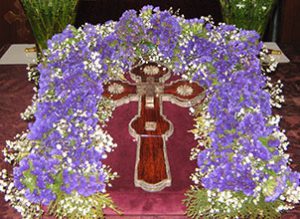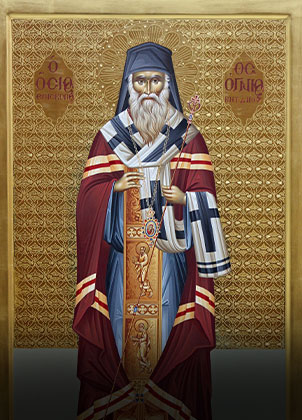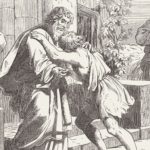In the name of the Father and of the Son and of the Holy Spirit.
“A certain man had two sons,” – this is how today’s Gospel parable starts, the parable of the Prodigal Son. This child-loving father, who had two sons, is God.
The two sons of the Father are all men, God’s children, obedient and disobedient.
It appears from the parable, that the life of the older son doesn’t differ much from the life of hired servants. The older son works with the hired servants all day long in the field. Though everything belongs to him as his father’s heir, at present his life is full of toil. He doesn’t see many joyful days. As he himself says to his father: “Lo, these many years I have been serving you; I never transgressed your commandment at any time; and yet you never gave me a young goat, that I might make merry with my friends.”
The older son represents the life of a Christian in the Church, which is the house of God, our Heavenly Father. The life of a Christian consists for the most part of labour and sorrows; “In the world you will have tribulation, but take courage I have overcome the world”, – says the Lord Jesus Christ to His disciples at the Last Supper.
Joy is promised to us in the future eternal life. As St Peter says in his epistle: “An inheritance incorruptible and undefiled and that does not fade away, reserved in heaven for you”. (1Peter 1)
A Christian, while living on earth, belongs in his faith to the age to come; he doesn’t seek earthly joy, but rejoices in hope of the heavenly Kingdom.
The older son works in the field of his father. Christian life is often compared to work on the land. The soil of our heart constantly shoots forth the weeds of passions, which we must constantly uproot. Christian life is an endless inner struggle with sin, which makes the soul stronger and more experienced.
The younger son, however, was fed up with such a life of toil in his father’s house. He longed for freedom and a joyful life now, not in the distant future. Thus, he requests his portion of goods from his father, and leaves for a far country, where he wasted everything he had in prodigal living.
What is described in the parable is constantly happening before our eyes. Many young people, who were brought up in the Christian faith, leave the Church. Christian life seams dull and monotonous to a young man, because he doesn’t understand its inner content and judges about it superficially. Going to church, praying, confession and Communion he regards as a senseless routine that in reality doesn’t give him anything.
On the other hand, modern life attracts a young man with its freedom, permissiveness, and new, untried pleasures. The wonderful gifts of God: youthfulness, beauty, health are wasted in the most unreasonable way in a promiscuous living.
However, circumstances began to change after the younger son spent all his possessions. He joined a citizen of that country, who sent him to his field to feed swine. He wished he could fill himself with the food the pigs ate, but no one would give him anything to eat. Thus, he who refused to work in the field of his loving father became the slave of an unmerciful master who didn’t even give him daily food.
The owner of the swine is the devil, the master of the field of sin; swine are sinful passions. The Gospel depicts the sinful life as a pasture of swine. Indeed, passions, like unclean animals, constantly demand to be satisfied, and the more they are satisfied, the more they become strong and demanding.
The unfortunate man, while unceasingly satisfying his passions, remains himself dissatisfied and frustrated. “I perish with hunger”, says the prodigal Son.
In our time, all of mankind resembles the prodigal son, but unlike the prodigal son of the Gospel, mankind doesn’t think of returning to the Father, – on the contrary, it hardens more and more in its apostasy. It openly declares that humans are equal to animals and the purpose of life is pleasures of the flesh and empty entertainment. Despite the apparent absurdity of this philosophy it has too many followers in modern society, especially among young people.
How can we keep our young people from mindlessly following the example of others? How can we teach them to be independent in their opinions and tastes, rather than floating in the mainstream? How can we reveal to them the spiritual beauty of the Christian life, which is based on self-denial and courage?
In the parable, the Prodigal son in the time of hardship remembered his father and returned to him. Likewise, our children, if they have an example of true Christian life in their parents, will not be lost. The pure memories of childhood will be for them a beacon that will bring them back to the Heavenly Father.
Amen.









